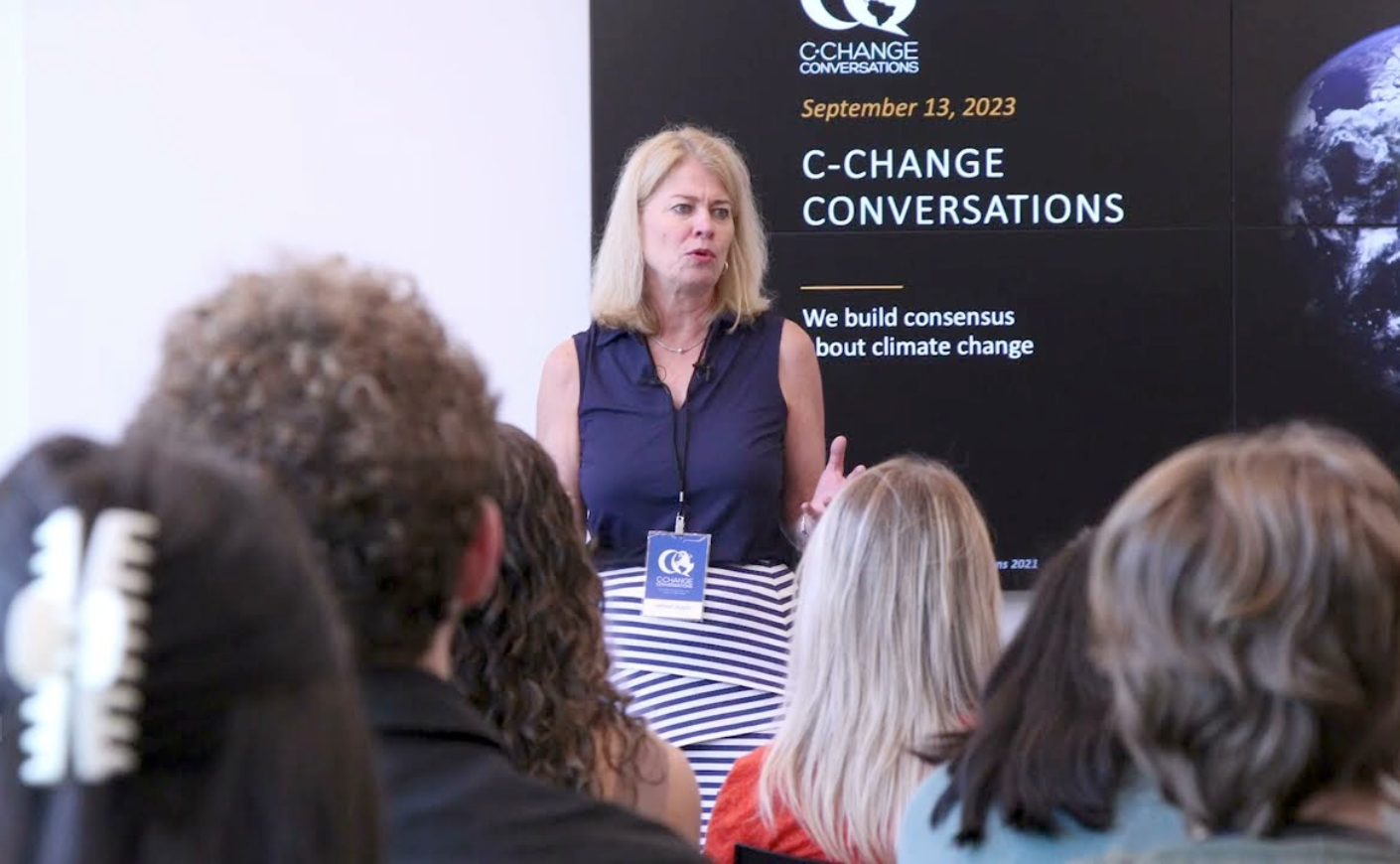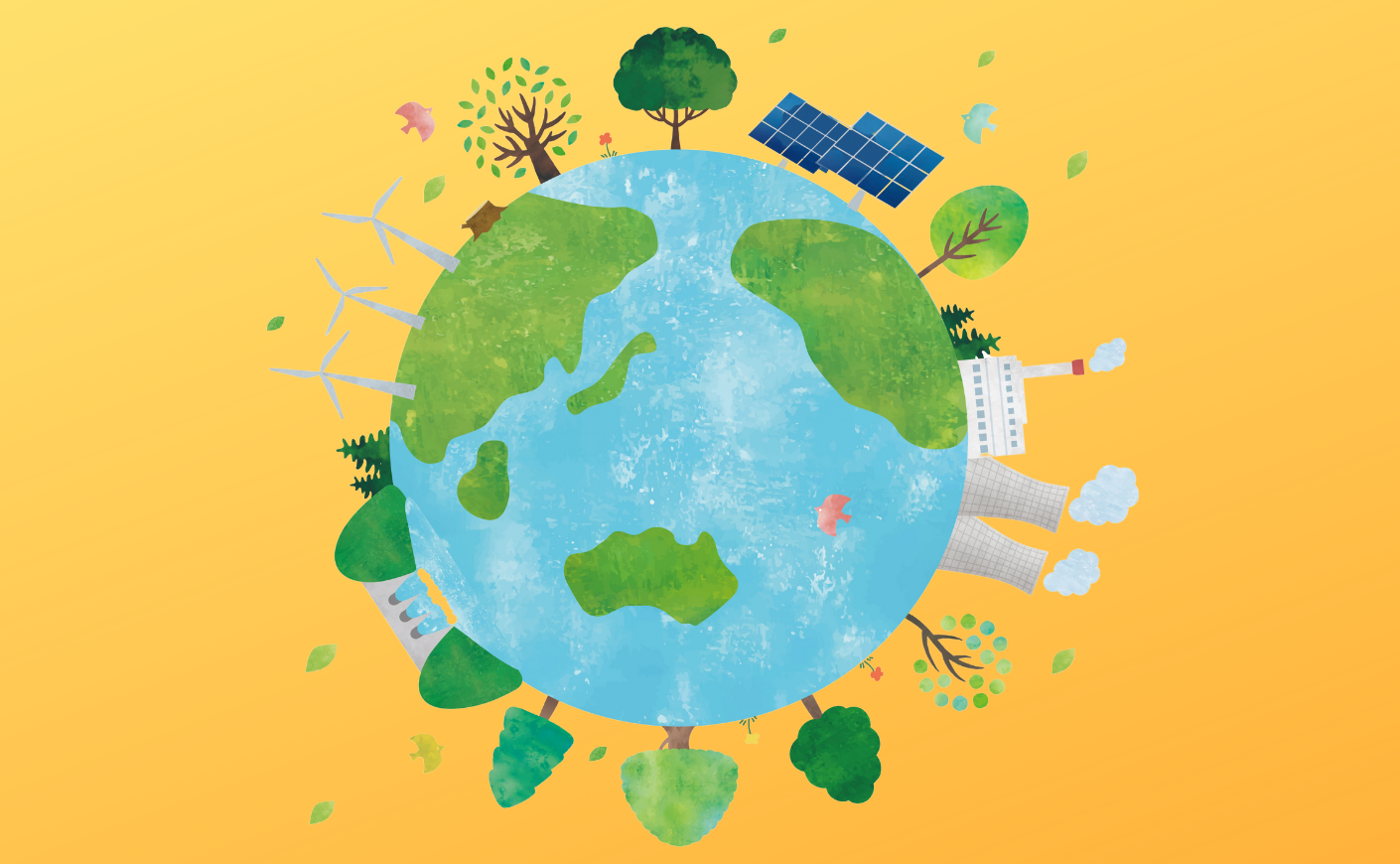From California's wildfires to Texas's freezing temperatures, the deadly impacts of climate change are visibly sweeping across the country. Yet, despite these stark realities, it’s pretty easy these days to meet someone who doesn’t believe the climate crisis is a crisis at all. One Republican, however, is working to bridge that divide.
Advocate Kathleen Biggins believes the problem lies in how climate change is framed. “People often see it as just an environmental issue, but it touches every part of our lives,” she explains. “When you connect the dots to health and community well-being, it resonates on a more personal level.”
Biggins admits her views on climate change have evolved over time. Her shift began in 2006, when she attended the Garden Club of America’s National Legislative Conference in Washington on behalf of her local garden club. “At the time, I didn’t believe climate change was real,” she recalls. “I thought it was overhyped — just concerns about polar bears in the distant future. It didn’t seem relevant.” But as she listened to the speakers discuss the issue as a credible threat, she grew curious. “I started researching it seriously, and the more I learned, the more concerned I became,” she says.
She also saw first-hand how climate change could intensify the destructive power of hurricanes — something she was already familiar with growing up in Louisiana. “I grew up in New Orleans, so I have a deep appreciation for hurricanes and how they can devastate a community for years,” she explains.
The conference ultimately inspired her to found C-Change Conversations, a nonprofit aimed at helping people across the political spectrum understand the science of climate change (which, it’s worth noting, 97 percent of scientists agree on). “I wanted to elevate the issue of climate change and help people understand how they really have skin in the game,” she tells us.
To date, Biggins and her colleagues have made presentations to more than 21,000 people across 33 states, including in her own hometown of Princeton, New Jersey. “We’ve expanded our talks to garden clubs, rotary clubs, chambers of commerce, churches, schools, universities, and businesses,” she says. “The response has been overwhelmingly positive.”
Describing a “typical” event isn’t easy, she notes, as each presentation is tailored to the venue and audience. Yet one thing is consistent — a lively question-and-answer session always follows.

What’s clear is that these 90-minute talks don’t just inform — they resonate. And the numbers back it up: 92% of attendees reported finding the presentation “very persuasive,” and every participant said they’d recommend it to a friend, club, business, or association.
“My favorite was a woman in Nantucket who said, ‘You opened my eyes, my heart, and my mind,’” Biggins shares. “Many people want us to share the presentation with their friends and even their children’s schools, showing a genuine desire to spread the message.”
Still, she acknowledges that some attendees need more convincing. “I’ve also had people shout, ‘You lie,’ and others walk out saying, ‘That was a wonderful presentation, but I don’t buy any of it,’” she admits. “But when people do have that ‘aha’ moment, they’re grateful — and they often want to share the presentation with others.”
But Biggins admits discussing climate change isn’t without its challenges.
Part of the difficulty, she says, is that the issue has been labeled a “liberal agenda” and is often considered taboo in conservative circles. This perception is reflected in a December 2024 Pew Research Center study, which found that 51% of U.S. adults felt suspicious of groups advocating for climate action, including 75% of Republicans. In contrast, 88% of Democrats reported feeling sad about environmental developments.
“We understand why the topic became so divisive,” Biggins says. “A former president of the American Bar Association told us that we lay out our case like presenting to a jury — sharing facts, weaving a narrative, but leaving the judgment up to the audience.”
Biggins adds that she and her team make the science accessible by explaining it in relatable terms, showing how it directly affects communities and families. “We frame the issue as a threat to things all Americans care about — jobs and the economy, personal health and safety, and geopolitical security. I think our measured approach, focusing on local impacts and highlighting the economic reasons for taking action, helps persuade many audience members to see climate change differently.”
Despite these divides, Biggins hopes to break down the barriers by focusing on science-based facts and framing the issue around shared values.
“Climate change is a human issue,” she says. “It affects the things we depend on for stability, like our health, economy, and community well-being.”









